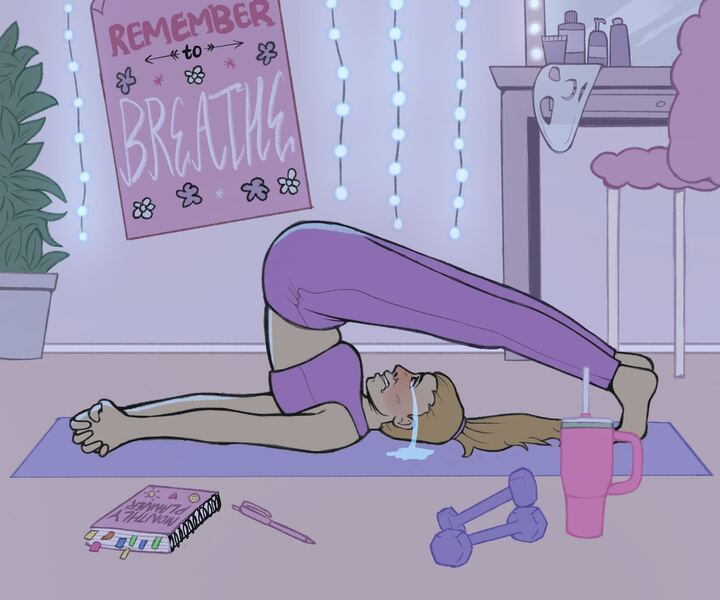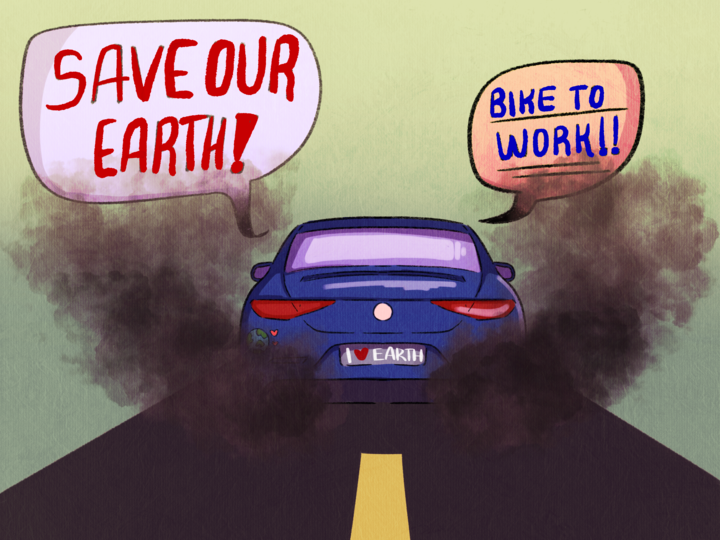Levels of expectations for college students have skyrocketed in the past decade. When our parents — even our older siblings — attended college, there was less pressure on the students to be exceptional in every aspect of their college careers. As college acceptances became more competitive, so did the students. Therefore, there has been a standard set that society expects to be met by any and all undergraduates.
This standard dictates that, to receive a favorable entry-level position post-graduation, a student must be involved in extracurricular activities, have leadership experience, spend time volunteering, have an exceptional GPAand, worst of all, have work or internship experience.
To meet these expectations, a student must spend their weekdays studying and their weekends volunteering and participating in extracurricular activities. With their semesters completely booked, the only logical time for students to gain precious work or internship experience is over the summer.
The societal standard had been set that undergraduates either work or study during their summer breaks. More often than not, students seek internships or jobs and, hopefully, find ones related to their future career plans.
The daunting task is to then find an opportunity that is both career-furthering and enjoyable. For many students, this makes their breaks seem like even more of a chore than the school year spent slaving away over books was.
One must ask how a student’s studying and being involved all week and volunteering on weekends has a chance to even look for these golden opportunities. Unfortunately, there isn’t just one or even a few locations that could contain the right internship for you. Students could find out about internships online, by word of mouth or through email.
Even if a student has ample time to be looking for these internships, they are extremely difficult to find and, once found, often hard to be accepted into. Additionally many, if not all, of the internships you can find that are enjoyable and competitive are unpaid.
Thus to build your resume and make yourself a competitive candidate for your first job out of college, you must give 20-40 hours of your weeks over summer working without being compensated.
The expectation of undergraduates to lead near-perfect lives to even enter into and be a functioning member of society could lead to crippling levels of stress.Today’s undergraduates face some of the highest levels of stress seen by modern society.
According to The American Freshman: National Norms Fall 2010 survey, “the percentage of students who said their emotional health was above average fell to 52 percent. It was 64 percent in 1985.” Additionally, the New York Times wrote, “while first-year students’ assessments of their emotional health were declining, their ratings of their own drive to achieve, and academic ability, have been going up, and reached a record high in 2010, with about three-quarters saying they were above average.”
Students are pushing themselves harder and harder every year, to their own emotional detriment. This isn’t an isolated feeling.
“A survey of college counseling centers has found that more than half their clients have severe psychological problems, an increase of 13 percent in just two years. Anxiety and depression, in that order, are now the most common mental health diagnoses among college students, according to the Center for Collegiate Mental Health at Penn State,” the New York Times wrote.
The often-discussed emotional distress of simply being competitive in classes doesn’t even begin to scratch the surface of the stress caused by the set of expectations placed on undergraduates. Yet with a work force expecting so much from recent college graduates, there isn’t exactly a way to avoid these pressures.
With so many other competitive applicants out there, the only way to stay above the curve is to have the experience. It just seems almost impossible to float above the water with so much weight pushing you down.
As summer fast approaches, students are scrambling to find that perfect internship or job while still studying for finals, leading their clubs and finding time to sleep and eat. You’d be hard pressed to find a student at the UA in the coming weeks without a lot on his or her mind.
The pressure an undergraduate experiences on a daily basis is ridiculous, but hopefully we can forge on together as students and try to find a path through the never-ending mountain of stress that is central to all of our lives.
Follow Sabrina Etcheverry on Twitter.








